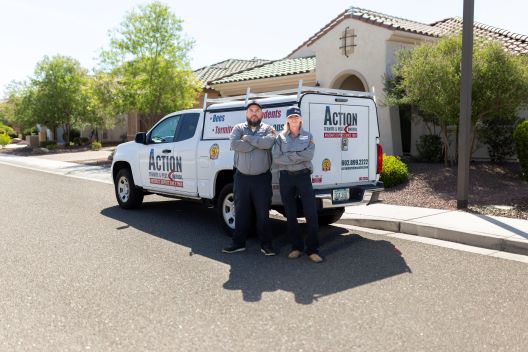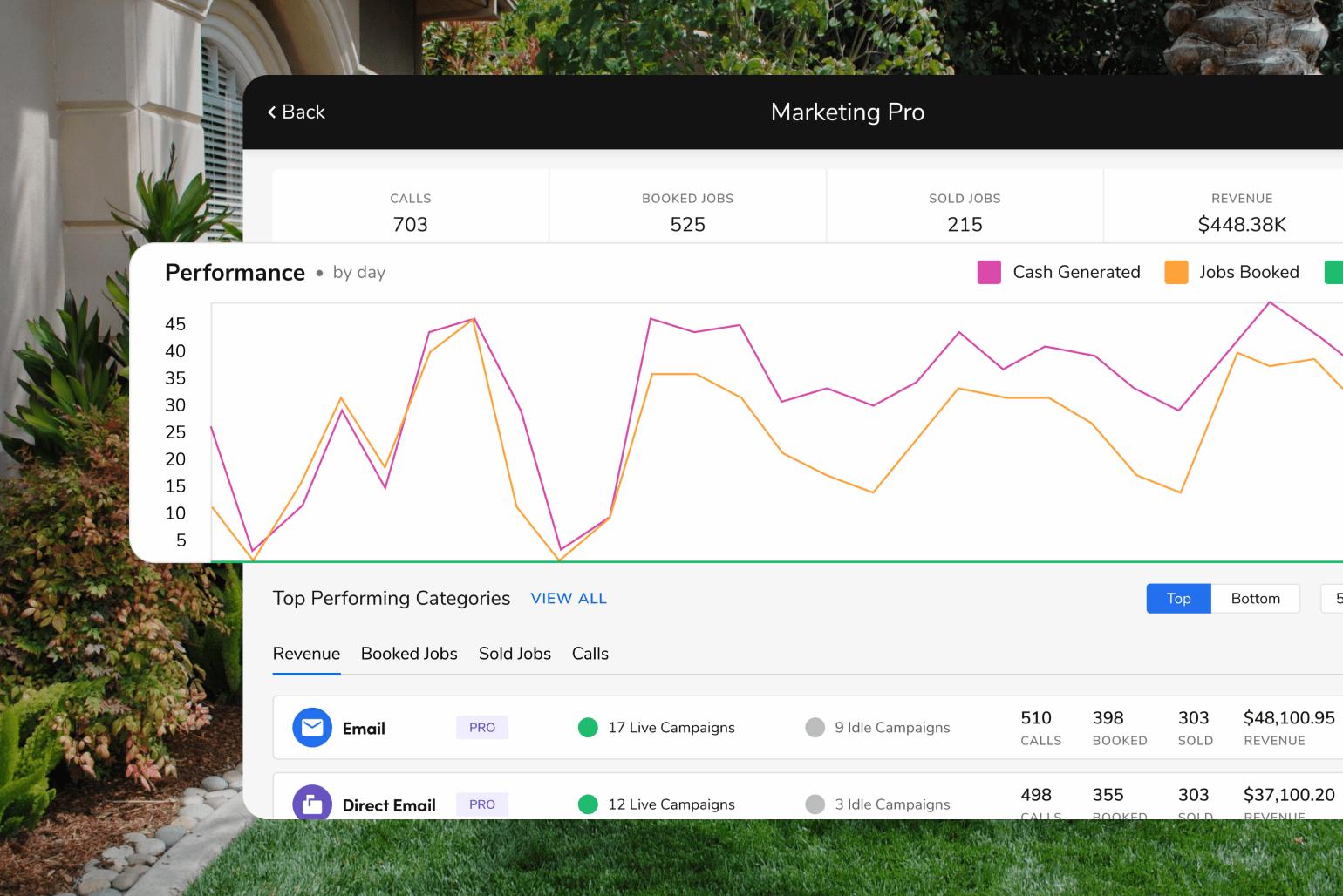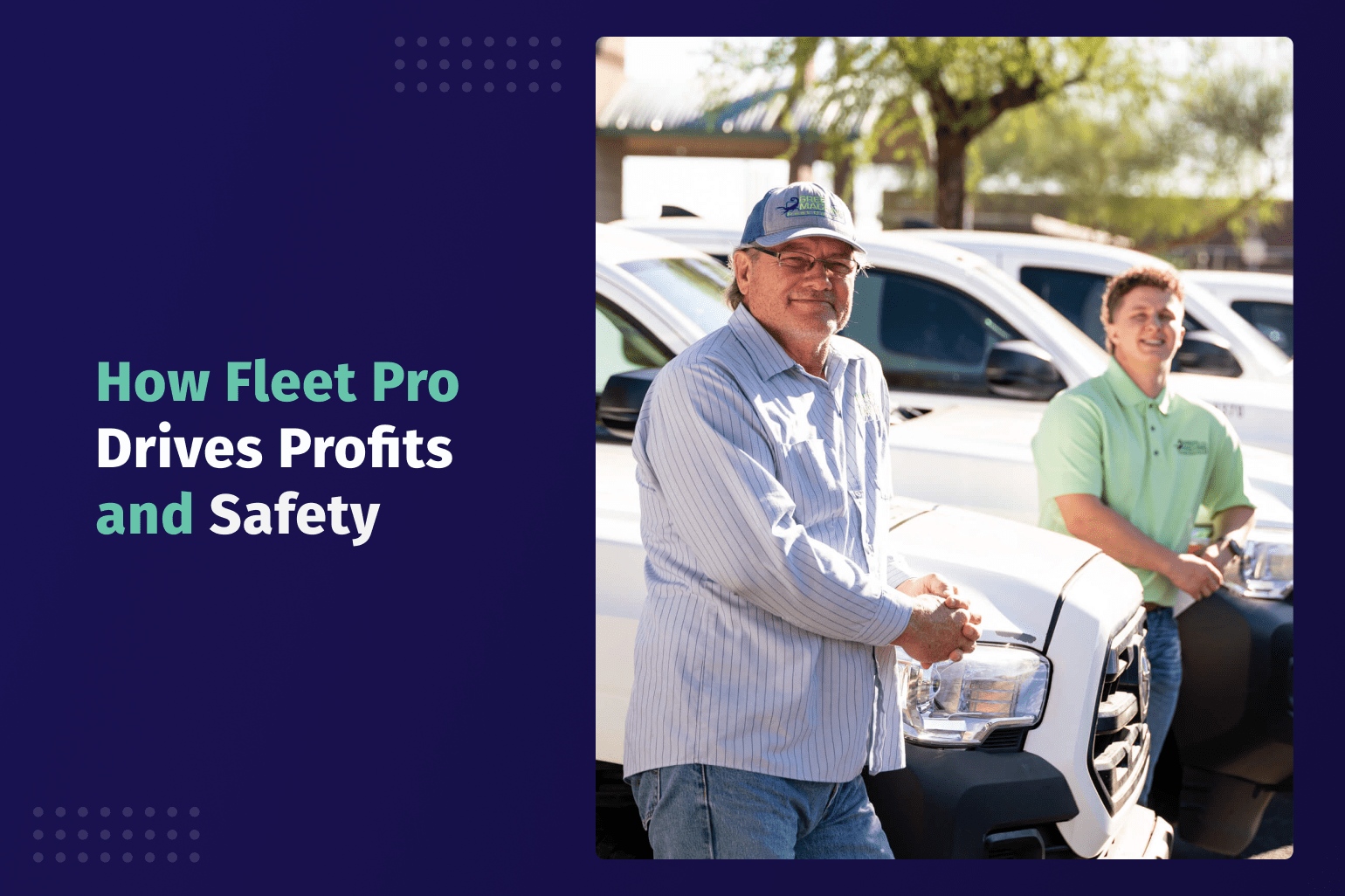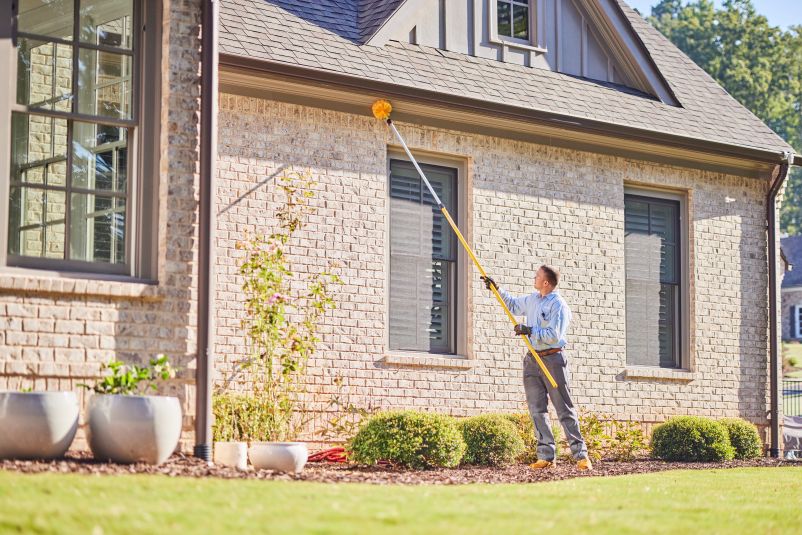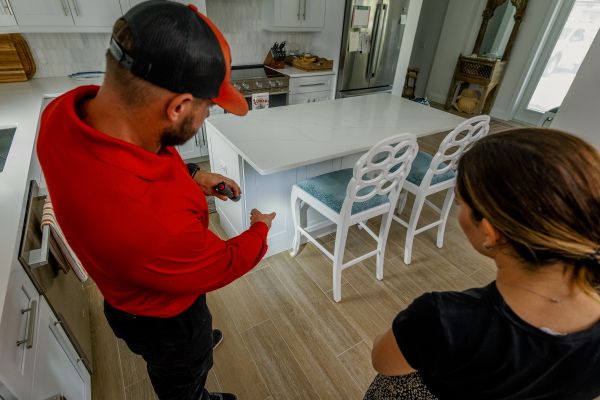Florida Pest Control License & Certification (Updated in 2024)
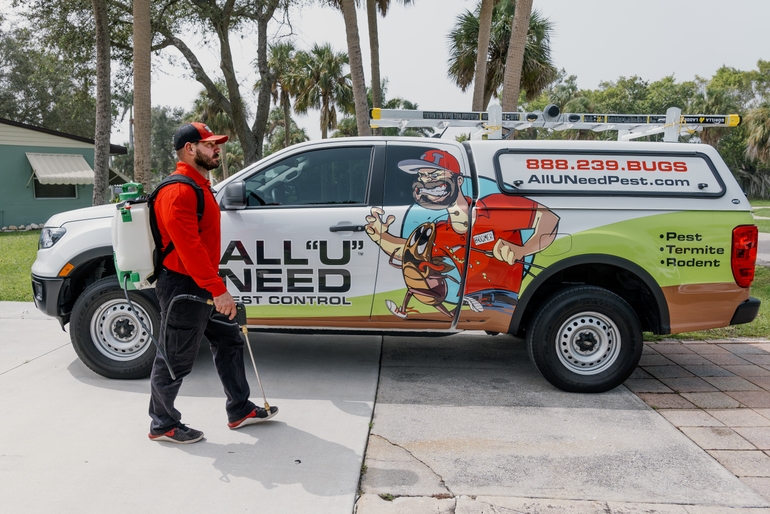
Obtaining a pest control license provides financial stability by entering a growing industry that requires skilled workers. Certified pest control professionals are in high demand across the US, including Florida.
The Bureau of Labor Statistics projects a 3% growth in pest control workers from 2023 to 2032. In Florida, the average salary for a pest control technician ranges from $28,909 - $52,389 per year.
What Is a Pest Control License?
A pest control license allows individuals or businesses to eliminate pests from residential and commercial properties. The license covers:
Using fumigants, insecticides, and pesticides.
Managing common pest control like rodents, insects, and other organisms.
Eradicating wood-harming pests like termites.
Preservation of wood, lawns, and ornamental plants.
Applying pesticides on commercial and private agricultural properties.
Some states have different licenses for servicing residential, commercial, government, or subsidized property.
Do You Need a Pest Control License in Florida?
Yes, you need a license to administer pesticides in Florida. The Florida Department of Agriculture and Consumer Services (FDACS) issues these licenses.
FDACS oversees all pest control activities in the state, including the use of restricted-use pesticides (RUPs) for various applications:
Ornamental plants and turf
Running or standing water
Roadsides, powerlines, and other public utilities
Residential, commercial, and industrial structures
Wooded areas and structures
In Florida, pest control regulations ensure that licensed professionals adhere to safety standards and environmental guidelines.
What Are the Licensing Requirements for Pest Control Contractors in Florida?
The Florida Department of Agriculture and Consumer Services (FDACS) manages the licensing and certification of pest control contractors. The program ensures that pesticide applicators, pest control advisers, and businesses comply with safety and environmental standards.
License Categories:
Individual Licenses and Certifications are required for individuals applying pesticides or supervising their application. Applicants must pass an exam demonstrating their knowledge of pest control practices and regulations.
Business Licenses are necessary for companies offering pest control services. Businesses must have at least one certified operator and comply with FDACS regulations.
The licensing process includes training, certification exams, and adherence to state guidelines to ensure safe and effective pest control practices.
What Are the Different Types of Pest Control Licenses in Florida?
Florida offers several types of pest control licenses to cater to various needs within the pest control industry. Depending on what certifications you receive, your future business profit margins will be affected, as more certifications will equate to more services you can offer, such as weed control.
License Category | Description |
Certified Pest Control Operator | General household and rodent control, lawn and ornamental pest control, termite and other wood-destroying organisms control, and fumigation. |
Limited Commercial Landscape Maintenance License | The LCLM license allows the application of non-restricted pesticides to ornamentals in landscapes but not in turf. |
Private Applicator License | This license is for people who use restricted use pesticides to produce an agricultural commodity on property they own or rent or on property owned or rented by their employer. |
Public Applicator License | This license is for people employed by a government entity (federal, state, county, city, etc.) who use restricted pesticides for agricultural or related applications. |
These licenses ensure individuals and businesses are qualified to perform pest control work safely and correctly. For more detailed information on each license type, visit the Florida Department of Agriculture and Consumer Services website.
What Are the Steps to Get a Pest Control License in Florida?
Getting a pest control license in Florida involves several steps.
Step 1: Determine the Type of License You Need
Decide which type of pest control license you need based on your role and the work you will perform.
Step 2: Complete the Required Training
Enroll in a training program approved by FDACS. Training covers pesticide use, pest management, and state regulations.
Step 3: Submit Your Application
Complete the application form provided by FDACS, including necessary documentation, such as proof of training, and pay the application fee.
Step 4: Pass the Licensing Exam
Schedule and take the licensing exam through FDACS. The exam tests your knowledge of pesticide application, safety procedures, and state regulations. Achieve a passing score to proceed.
Step 5: Obtain Your License
You will receive your pest control license from FDACS upon passing the exam. This license allows you to perform pest control activities legally in Florida.
Step 6: Maintain Continuing Education
Once licensed, complete continuing education requirements to stay updated on pest management practices and regulations. Attend workshops, seminars, or online courses to fulfill these requirements.
What Is the Mean Salary for a Pest Control Technician in Florida?
Here are the average salaries for various positions in the pest control industry in Florida:
Pest Control Technician: From $28,909 - $52,389 per year.
Certified Applicator: Around $31,453 per year.
Qualified Applicator: Around $31,965 per year.
Pest Control Supervisor: About 32,101 per year.
Salaries will vary based on the city you work in and factors such as education, certifications, additional skills, and years of experience.
How Much Does It Cost to Get a Pest Control License?
The total cost of a pest control license depends on the type of license you choose to obtain. Generally, you can expect to pay between $15 and $300 in exam fees per license. Here are some specific exam costs and fees for different license types:
All limited license exams: $150 per exam
Pest control operator exams: $300 per exam
Urban commercial fertilizer: $15 class fee, $25 license fee
Review the Florida Pesticide Certifications site and the pest control licensing fee FAQs for the most up-to-date fee information.
How Long Does It Take to Get a Pest Control License?
The time required to obtain a pest control license varies based on the type of work you want to perform, the structures involved, whether you work for a business or government agency and the state you are in.
Typically, the process can take between 2 and 4 years in Florida.
Florida Pest Control Training Programs And Schools
As pest control technology and methods advance, formal training is becoming increasingly beneficial and often necessary. Numerous programs and schools in Florida provide the training needed to become certified pest control professionals. These programs are available statewide and offer both in-person and online options.
Registered Apprenticeship Programs
University of Florida IFAS Extension: The UF/IFAS Extension offers apprenticeships in structural and landscape pest management, combining theoretical knowledge and practical experience.
Accreditation and Approved Programs
National Organizations: Programs may be accredited by national organizations, such as the National Pest Management Association (NPMA), which ensures they meet industry standards.
On-the-Job Experience
Gaining on-the-job experience is crucial for developing the hands-on skills needed to be a pest control professional. You must have good customer service skills, be detail-oriented, possess some mechanical capability, and be physically fit, as the job can involve heavy lifting, walking, standing, and working in tight spaces.
Completing one of these programs will provide you with the knowledge and skills to pass the Florida licensing exam and start a successful pest control career.
Florida Licensing Exam Details
You will receive an admission slip once the Florida Department of Agriculture and Consumer Services approves your application. You can schedule the exam in one of two ways:
Schedule an electronic exam at your local county extension office (appointment only) or through the Pesticide Certification Exam website.
Visit the testing center in Apopka to take a written exam. No appointment is needed, but you must bring your approval notice to the exam site.
All paper certification exams are administered at:
The UF/IFAS Mid-Florida Research and Education Center 2725 S. Binion Rd. Apopka, FL 32703
Does My Florida Pest Control License Work in Any Other State?
Some states offer reciprocity agreements that allow your state license to be valid in other states.
Florida reciprocates pest control licenses with various states depending on the license category. For the latest information, refer to the Reciprocity Compatibility Chart.
Pesticide Applicator Specific Requirements: EPA Certification
Federal EPA regulations under the Federal Insecticide, Fungicide, and Rodenticide Act (FIFRA) mandate certification for pesticide applicators who use restricted-use pesticides (RUPs).
This requirement applies to those applying RUPs in specific areas, including various types of applicators such as not-for-hire, government, and education applicators.
Types of EPA Certifications: There are different levels of certification depending on the scope of work:
Private Applicator: For individuals using RUPs to produce agricultural commodities on their own or rented land.
Commercial Applicator: For individuals applying RUPs in residential, commercial, or industrial areas.
Non-Commercial Applicator: For those applying pesticides as part of their job on properties owned or managed by their employer.
Certification Exam: You must get your EPA Certification from an approved organization. The EPA’s website lists approved organizations. For all certifications, you must pass the core section of the EPA certification exam, which covers:
Pesticide laws and regulations
Pest identification and biology
Pesticide formulations
Application techniques
Safety protocols
Environmental protection
Training and Preparation: Most training programs include preparation for the EPA certification exam as part of their curriculum. You can also find approved training programs on the EPA’s website or through state agencies like the Florida Department of Agriculture and Consumer Services.
Visit the EPA’s Certification of Pesticide Applicators (CPA) page for more information and to view approved certification programs.
What Happens If My Pesticide License Expires?
If you don’t renew your license before it expires, you won’t be able to purchase or apply any restricted-use pesticides.
If you renew your license after it expires, you must submit a signed and notarized affidavit stating that you haven’t purchased or applied any restricted-use pesticides since then.
A $50 late fee applies if your license is renewed more than 60 days after expiration.
Licenses that have expired for over a year cannot be renewed, and you’ll need to retake the certification exams.
Other Requirements Unique to Florida
To keep your pest control license in Florida, you need to be aware of the following state-specific requirements:
License Renewal: You’ll need to renew your Florida pest control license every 1-4 years, depending on which license you have received. You’ll receive a notice in the mail 60 days before your license expires. You can renew your pest control licenses online through the FDACS website’s portal.
Continuing Education
In Florida, continuing education is required to keep a pest control license. Licensed pest control applicators must complete continuing education units (CEUs) annually to maintain their license and stay current with industry practices and regulations.
Annual CEUs: The Florida Department of Agriculture and Consumer Services determines the number of CEUs applicants must complete each year. You can read how many from their website and find study materials there.
Failing to complete the required continuing education can prevent you from renewing your license and may result in the suspension or revocation of your certification.
Resources
Here are some valuable resources for obtaining and maintaining a pest control license in Florida:
Using these resources helps your pest control company stay current on industry trends, regulatory updates, and professional development opportunities.
Ready to Get Certified?
Obtaining your pest control license in Florida is one step towards a career in a growing industry. You can become a certified applicator and launch your pest control career once you have received your applicator certification.
Visit our FieldRoutes Blog to learn more about commercial pest control and discover how FieldRoutes can help streamline your operations.
